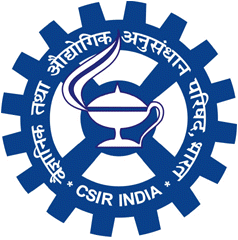Treatments Focus
The Actual Cost of Genetic Testing in India

Genetic testing is the study of a person’s DNA to have a higher knowledge about their health, heritage, and susceptibility to certain diseases. In the kaleidoscope of India’s healthcare landscape, genetic testing shines as a beacon of hope for the early detection of diseases and personalized treatments.
In a country like India, where economic disparities continue, the cost of genetic testing could be a major problem. Dr. Abdul Kalam, one of India’s former Presidents, once said, “Healthcare is a basic need of an individual, and its cost should not be a barrier.” Understanding the cost of genetic testing is not just about economic concern but is also a very important factor in guaranteeing the health and well-being of its citizens.
This article takes a look at the numbers and narratives behind the cost of genetic testing in India, it also offers awareness into its impact on healthcare accessibility and equity.
The Cost of Genetic Testing in India by GenepoweRx
List of GenpoweRx Products
| Preventive Genomics | ₹ |
| Wellness Genomics | 15,600 |
| GenepoweRx Pharmacogenomics | 15,600 |
| GenepoweRx Total | 27,000 |
| Specialty Genomics | ₹ |
| GenepoweRx Neuromuscular Health | 15,600 |
| GenepoweRx Psychiatry & Pharmacogenomics | 15,600 |
| GenepoweRx Paediatrics Health | 15,600 |
| GenepoweRx Reproductive Health | 15,600 |
| GenepoweRx Cardiac Care | 15,600 |
| GenepoweRx NephroCare | 15,600 |
| GenepoweRx Diabetes Care | 15,600 |
| Cancer Genomics | ₹ |
| OncoRx Condition Specific | 32,000 |
| OncoRx Mini | 65,000 |
| OncoRx Comprehensive | 220,000 |
Factors Influencing Genetic Test Costs in India
Type of test Genetic Testing:
Type of Genetic Samples:
Genetic Testing complexity:
Genetic Testing Laboratory and Technology:
Analyzing and reporting:
Counseling and consulting:
Geographical location:
Insurance coverage:
Research vs. clinical testing:
Brand and reputation:
Differences Between Direct to Consumer vs Hospital Based Genetic Tests
Access and convenience
- DTC: consumers can order the test online through retail channels, making it convenient and easy to get with no prescription from a doctor.
- Hospital-based: In hospitals, genetic tests are usually requested by healthcare workers in response to a person’s specific medical needs.
Regulation and oversight
- DTC: The companies that handle these testing are regularly inspected, and the level of oversight can be different due to the region. Also, the quality and accuracy are often different due to the skill of the care providers.
- Hospital-based: Hospital-based genetic testing is always put through stern regulatory standards. There are standard control measures which help to ensure accuracy and clinical validity.
Purpose and scope
- DTC: DTC testing is usually focused on original traits, and limited health-related information.They may not include a comprehensive medical assessment.
- Hospital-based: They are usually more comprehensive and are used for diagnosis, checking, or managing medical conditions. It involves tests for specific diseases or conditions.
Counseling and interpretation
- DTC: The test often provides less genetic counseling. Consumers are responsible for interpreting the results for themselves or seeking instructions from third-party genetic advisers.
- Hospital-based: Genetic counseling is usually an essential part of hospital-based genetic testing. The available counselors help the patients to understand the implications of their results and make accurate decisions.
Medical integration
- DTC: The results may not be included into a person’s medical records or used for medical decision-making unless the person chooses to share the data with their healthcare provider
- Hospital-based: Results are typically included into a patient’s medical records and used by healthcare professionals to direct treatment and care.
Cost
- DTC: The tests are often marketed as being cheap because consumers pay straight to the testing companies for the tests.
- Hospital-based: The cost for these tests is usually covered by health insurance companies, but it could also need the referral of a healthcare provider.
Privacy and data security
- DTC: Issues have arised in regards to how DTC companies usually handle and share genetic data. Consumers should carefully access privacy policies when applying.
- Hospital-based: Hospitals usually have specific steps for protecting a patient’s privacy and their data.
Insurance and Genetic Testing in India
- Non-Discrimination: Insurance companies generally could not treat individuals differently based on genetic results. The Genetic Information Nondiscrimination Act(GINA) serves as a model for the principle.
- Risk Assessment: Insurance companies can use genetic test results to assess risk. Suppose the genetic results of a person indicate a higher likelihood of a certain condition. The insurer may want to alter the premium or coverage accordingly.
- Disclosure Requirements: When a person wants to apply for insurance, they might need to disclose any known genetic test results. Giving false information could lead to the denial of the claim.
- Voluntary Testing: Genetic tests are usually voluntary, and individuals can choose to engage in tests for various reasons, such as health assessment or family planning.
- Health Insurance: When it comes to health insurance, insurers may decide to consider genetic test results when approving insurance policies. If a person is at higher risk for a particular disease due to their genetics, it may affect the price or the availability of health insurance.
- Life Insurance: A person’s genetic test results might be surveyed when checking mortality risk. If you have any genetic marker indicating a higher risk of severe medical conditions, it could affect the life insurance policy.
FAQS: Genetic Testing in India
Are the genetic testing kits available in India reliable?
Genetic testing companies in India offer good kits. But consumers should ensure to pick a certified and dependable one.
What is the difference between a direct-to-consumer test and a hospital-based genetic test?
Genetic testing companies in India offer direct-to-consumer tests for individuals’ interest. While hospital-based tests are often required by healthcare providers for medical purposes.
How to choose a credible and affordable genetic testing service in India?
Ensure you select a reputable genetic testing company in India by looking for accreditation and reviews.
Related Articles
Book an Appointment to understand how GenepoweRx can help you in treating
The Actual Cost of Genetic Testing in India
Meet The Doctors
Dr Kalyan Uppaluri
Dr Hima Challa
Your genetics … Your Test ... Your Health Success
It’s always the word of mouth that’s the best advice. Here are some of our…


Our Partners






Professional Partnerships
Government Association

